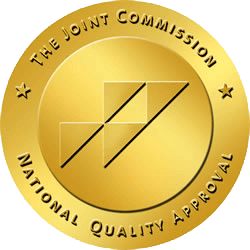Adolescents face some unique challenges. Of course, the teen years aren’t all bad, but they are a formative stage of life, and growing into adulthood can bring stresses from many directions. For an alarming number of teens, these challenges can result in mental health issues and substance abuse. Approximately twenty percent of adolescents have a diagnosable mental health disorder, such as depression, anxiety disorder or impulse control disorder. Additionally, over half of adolescents who receive treatment for a mental health disorder also turn to drugs and alcohol as a form of self-medication. This results in what is known as a dual diagnosis, which is a broad category identifying someone who experiences a mental illness and a substance abuse problem at the same time.
Types Of Mental Health Issues
Many mental health problems emerge in late childhood and early adolescence. Understanding the common mental health issues faced by teens can help identify and prevent problems from developing or growing worse.
- This is the most prevalent form of mental health disorder among adolescents. Overwhelming sadness, anger and melancholy are common markers. However, depressed teenagers may exhibit more irritability than sadness, as well as hostility.
- Anxiety disorders. These include phobias, panic disorder, social anxiety, post-traumatic stress disorder (PTSD) or obsessive-compulsive disorder (OCD). Adolescents with anxiety disorders may appear overly emotional, highly uneasy or even fearful. They may also seem withdrawn or unresponsive.
- Eating disorders. Eating disorders affect around five percent of young people and can lead to serious physical complications. Anorexia nervosa involves obsession about weight and eating and may prompt excessive exercise. Those with bulimia nervosa engage in binge eating followed by purging, usually through vomiting or using laxatives. Body dysmorphia is a condition that creates obsessive focus on perceived flaws in personal appearance.
- Attention deficit hyperactivity disorder. ADHD affects nine percent of teenagers 12 to 17 years old. It is marked by shortened attention span, impulsiveness and disorganization. Those with ADHD become bored easily, have difficulty concentrating even for short periods of time and can be disruptive.
Signs and Symptoms
It’s important to understand that it’s perfectly normal for young adults to be moody, cranky and angst-ridden even without the influence of a mental health disorder. Not every symptom is an indicator of a serious problem. It may simply be part of growing up. But persistent or unusually severe symptoms may be warning signs of an underlying mental health issue. In addition to the signs identified above, which are typically associated with the particular disorder, there are general indicators you should note:
- Persistent irritability or anger
- Social withdrawal
- Changes in appetite or eating habits
- Changes in sleep habits
- Disruptions in school performance
- Difficult or troubled relationships
- Risky sexual behavior
What To Look For When There Is Also Substance Abuse
Statistics indicate that substance abuse disorders frequently go hand in hand with mental disorders. Either mental illness or substance abuse may develop first, with symptoms of each complicating or worsening the other. Someone experiencing a mental health condition may turn to drugs and alcohol to improve the troubling symptoms they experience. This only worsens the mental health conditions and feeds the substance addiction. Or someone may begin abusing substances, and the drug’s effects on brain chemistry and behavior can lead to mental health problems. Symptoms of dual diagnosis vary widely, but the chief characteristic is that both mental illness and substance abuse occur simultaneously. This means the symptoms of various mental health disorders would apply, but certain signs of substance abuse would also be present, such as:
- Extreme mood changes
- Confused thinking
- Tolerance and withdrawal symptoms
- Unusual, risky or drug-seeking behaviors
Mental disorders take a toll on adolescents, their parents and friends. But there are effective treatments for mental health disorders and for any accompanying substance abuse. If treatments begin soon after symptoms appear, they are very effective in reducing the impact on the adolescent’s life, both now and in adulthood. To learn more about recognizing mental health issues in your teen, give us a call at 877-466-0620.


